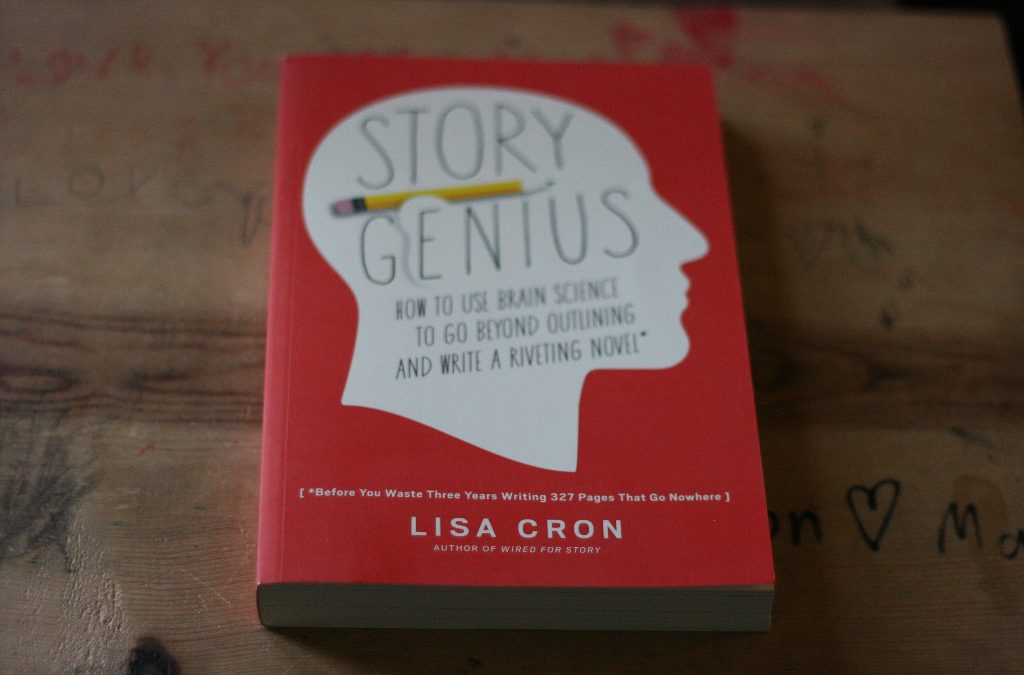I know there’s a lot of debate about whether or not a writer should brainstorm a story in the first place. But let’s put that debate aside, for now, because this resource might be the one to convince you that it’s actually worth your time to plan out a story before you begin it.
Story Genius: How to Use Brain Science to Go Beyond Outlining and Write a Riveting Novel, by Lisa Cron, was one of the best writing books I’ve read all year. It’s about exactly what the title suggests: a way to write novels that hooks into a reader’s brain and won’t let them go.
I was first introduced to the genius of Lisa Cron several years ago when I read her other book, Wired for Story: The Writer’s Guide to Using Brain Science to Hook Readers from the Very First Sentence. This book was fantastic, too, so I knew, when I saw that Cron was coming out with a new book, I would want to add it to my writer resources.
This one, believe it or not, was even better than Wired for Story. I’ve not read a book that details the brainstorming of a novel as efficiently as this one. Cron has you diving deeply into a single character’s backstory, which seems, at first glance, like it doesn’t really matter, because everyone tells you a book shouldn’t be bogged down with backstory, right? Well, backstory is what creates the story in the first place. It also happens to be what makes readers care about a story and its characters.
Cron includes exercises that will help you create the proper backstory so that you’ll have a compelling novel at your fingertips. I took so many notes and adjusted my brainstorm document based on Cron’s recommendations, because they all felt right to me. I write somewhat intuitively, but I also spend quite a bit of time brainstorming my novels before I begin them. The notes I took from this book will allow me to streamline that brainstorm process even more efficiently.
Chapters include subjects like the who, the why, the worldview, and where your novel should begin. Cron details things like the importance of figuring out past scenes that may or may not make it into a story—because, as in real life, the more you know about a character and their personality and why they do what they do, the more connected you’ll feel to them. And, as a writer, the faster you’ll be able to write their story.
What I liked most about this book was that Cron didn’t just teach the concepts she outlined. She also included a section called “What to do,” where she detailed what authors should do in each step of the brainstorm process. I found this wonderfully helpful and added all the exercises to my own brainstorm document.
She also provided readers with a scene card that will help in brainstorming what happens in each scene and why. And, in addition to all that, Cron included a friend’s process—showing how a novel would be brainstormed from abstract concept to ready-to-write-a-first-draft outline. Sometimes we think that an author has an idea for a story and then just writes it. It’s not that simple, and it was helpful watching an author work out each step of Cron’s process on the page.
I will never brainstorm another novel without Cron’s method. I see it saving me so much time and, in the process, giving me a more efficient grasp on the story I’m trying to tell. I highly recommend Story Genius to those who want to write a great book and save themselves time doing it.
The above is an affiliate link. I only recommend books I find valuable myself. I don’t even actually talk about the books I don’t find valuable, because I try to forget I wasted time on them.


